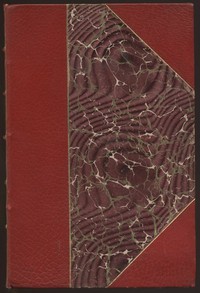Old Mortality, Complete by Walter Scott (christmas read aloud .txt) 📗

- Author: Walter Scott
Book online «Old Mortality, Complete by Walter Scott (christmas read aloud .txt) 📗». Author Walter Scott
Large bodies, composed of the Highland clans, having in language, religion, and manners, no connexion with the insurgents, had been summoned to join the royal army under their various chieftains; and these Amorites, or Philistines, as the insurgents termed them, came like eagles to the slaughter. In fact, every person who could ride or run at the King’s command, was summoned to arms, apparently with the purpose of forfeiting and fining such men of property whom their principles might deter from joining the royal standard, though prudence prevented them from joining that of the insurgent Presbyterians. In short, everyrumour tended to increase the apprehension among the insurgents, that the King’s vengeance had only been delayed in order that it might fall more certain and more heavy.
Morton endeavoured to fortify the minds of the common people by pointing out the probable exaggeration of these reports, and by reminding them of the strength of their own situation, with an unfordable river in front, only passable by a long and narrow bridge. He called to their remembrance their victory over Claverhouse when their numbers were few, and then much worse disciplined and appointed for battle than now; showed them that the ground on which they lay afforded, by its undulation, and the thickets which intersected it, considerable protection against artillery, and even against cavalry, if stoutly defended; and that their safety, in fact, depended on their own spirit and resolution.
But while Morton thus endeavoured to keep up the courage of the army at large, he availed himself of those discouraging rumours to endeavour to impress on the minds of the leaders the necessity of proposing to the government moderate terms of accommodation, while they were still formidable as commanding an unbroken and numerous army. He pointed out to them, that, in the present humour of their followers, it could hardly be expected that they would engage, with advantage, the well-appointed and regular force of the Duke of Monmouth; and that if they chanced, as was most likely, to be defeated and dispersed, the insurrection in which they had engaged, so far from being useful to the country, would be rendered the apology for oppressing it more severely.
Pressed by these arguments, and feeling it equally dangerous to remain together, or to dismiss their forces, most of the leaders readily agreed, that if such terms could be obtained as had been transmitted to the Duke of Monmouth by the hands of Lord Evandale, the purpose for which they had taken up arms would be, in a great measure, accomplished. They then entered into similar resolutions, and agreed to guarantee the petition and remonstrance which had been drawn up by Morton. On the contrary, there were still several leaders, and those men whose influence with the people exceeded that of persons of more apparent consequence, who regarded every proposal of treaty which did not proceed on the basis of the Solemn League and Covenant of 1640, as utterly null and void, impious, and unchristian. These men diffused their feelings among the multitude, who had little foresight, and nothing to lose, and persuaded many that the timid counsellors who recommended peace upon terms short of the dethronement of the royal family, and the declared independence of the church with respect to the state, were cowardly labourers, who were about to withdraw their hands from the plough, and despicable trimmers, who sought only a specious pretext for deserting their brethren in arms. These contradictory opinions were fiercely argued in each tent of the insurgent army, or rather in the huts or cabins which served in the place of tents. Violence in language often led to open quarrels and blows, and the divisions into which the army of sufferers was rent served as too plain a presage of their future fate.
The prudence of Morton found sufficient occupation in stemming the furious current of these contending parties, when, two days after his return to Hamilton, he was visited by his friend and colleague, the Reverend Mr Poundtext, flying, as he presently found, from the face of John Balfour of Burley, whom he left not a little incensed at the share he had taken in the liberation of Lord Evandale. When the worthy divine had somewhat recruited his spirits, after the hurry and fatigue of his journey, he proceeded to give Morton an account of what had passed in the vicinity of Tillietudlem after the memorable morning of his departure.
The night march of Morton had been accomplished with such dexterity, and the men were so faithful to their trust, that Burley received no intelligence of what had happened until the morning was far advanced. His first enquiry was, whether Macbriar and Kettledrummle had arrived, agreeably to the summons which he had dispatched at midnight. Macbriar had come, and Kettledrummle, though a heavy traveller, might, he was informed, be instantly expected. Burley then dispatched a messenger to Morton’s quarters to summon him to an immediate council. The messenger returned with news that he had left the place. Poundtext was next summoned; but he thinking, as he said himself, that it was ill





Comments (0)